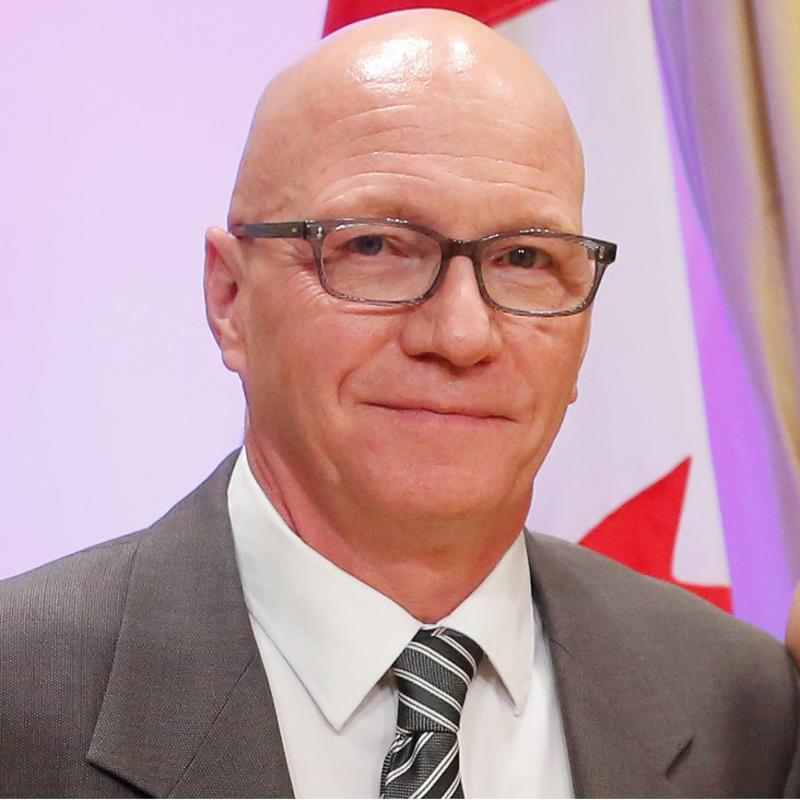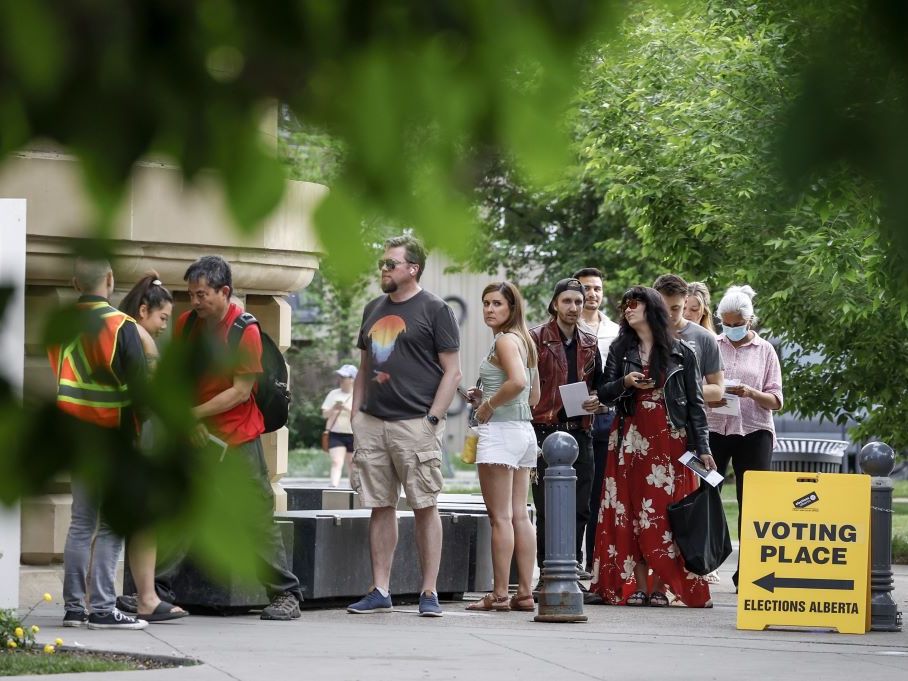There is much heated debate in Alberta these days over whether the United Conservative government of Premier Danielle Smith should hold a referendum on leaving the Canada Pension Plan to form its own Alberta pension plan.
Smith, during the 2023 election, categorically stated that “no one is touching anybody's pension.” Now, she and her government are blithely ignoring that promise and seem intent on pushing ahead with a referendum, even though polls show a significant majority of Albertans want to keep the CPP.
But another critical question has yet to be asked. Can Elections Alberta be trusted to facilitate an objective, apolitical referendum, given its well-documented record of failure to provide unbiased information to voters during the 2021 municipal election and the 2023 provincial election?
Doubts about a ‘free and fair’ campaign
“We really do need a well-resourced and independent election authority in order to prevent the premier's office from putting its finger on the scale,” University of Alberta political scientist Jared Wesley told The Tyee.
“And we have seen little evidence that Elections Alberta is well positioned to run a free and fair campaign this time around — if we have one.”
Wesley has first-hand knowledge. He was one of several academics who had tried — in some cases repeatedly — to warn Elections Alberta that information it had provided to Alberta voters for an October 2021 referendum on removing equalization from the Constitution was false and misleading.
Despite receiving some of the warnings weeks in advance of election day, and a protracted Twitter spat between University of Alberta economist and law professor Andrew Leach and Elections Alberta’s official account, Elections Alberta neither retracted nor corrected the information.
Wesley, and one constitutional law expert, said the incorrect information clearly benefited the misleading narrative advanced by the Jason Kenney government.
Just 18 months later, in May, Elections Alberta provided information to voters about identification and registration it said was required to vote in the provincial election. Except it wasn’t required. Wesley and others said it was misleading and might serve to suppress voters more likely to vote for the NDP.
This time, Elections Alberta changed the information on its website and social media, and cancelled radio ads after blistering online criticism and an official letter from the Alberta NDP.
Wesley isn’t convinced there will be a CPP referendum after federal Conservative Leader Pierre Poilievre jammed a stick in the spokes of Smith’s referendum plan by telling Albertans they should stay in the CPP.
Smith is painted into a corner because Poilievre is the most popular politician in Alberta, Wesley said, with an approval rating of around 80 per cent, while Smith’s hovers around 40 per cent at best and the widely reviled Justin Trudeau sits in the 20 per cent range.
Wesley said that with the federal Conservative leader's CPP endorsement, “if there were any conservatives that were on the fence about it, I think that they have now jumped on the CPP bandwagon.”
Predictably, Poilievre blamed Trudeau for causing Alberta to throw the CPP grenade into the never-ending intergovernmental war with Ottawa in an attempt to gain leverage because Trudeau has “attacked Alberta’s economy.”
But Wesley observed that a provincial pension plan has been a goal of several previous conservative governments dating back decades.
If Poilievre wins the next federal election, as polls now suggest he will, Smith can back away from the CPP issue, Wesley said. She can claim it was about gaining leverage. And with Poilievre in the prime minister’s office, Smith can assert Alberta’s fiscal federalism concerns will be heard, just as they were when Stephen Harper’s government held power.
The UCP’s pension PR blitz
Still, who can say with any certainty what Danielle Smith’s policy-on-the-fly government might do?
And if it does move forward with a referendum on the CPP, Elections Alberta faces a situation in which it will be expected to somehow counter publicly funded misinformation from the government, a precedent set by Jason Kenney’s government during the equalization referendum.
It is already happening. The Smith government is spending more than $7.5 million on a publicity campaign and a massive survey that is blatantly misleading and designed not to objectively inform Albertans, but to sell them on the idea of an independent Alberta pension plan.
“If the construction of their public engagement activities is any indication, they don’t seem all that interested in getting a valid sense of Albertans’ feelings on the issue of pensions,” said Wesley, who directs Common Ground, a team of university researchers that for the past decade has conducted polling and focus groups in an attempt to understand what motivates Albertans politically.
The government’s public engagement messaging uses what economists say is a ludicrously false assumption that Alberta will get more than half of the CPP’s assets — more than $344 billion — if it leaves the CPP. (The CPP’s board has effectively stated Alberta absolutely won’t get anywhere near that much.)
Tellingly, the government’s online survey doesn’t ask if Albertans are satisfied with the CPP and want to keep it.
“It is one of the most blatant uses of public funds, and a public engagement exercise as a glorified push poll, that I have ever encountered,” Wesley said. A push poll is most commonly employed by political campaigns in an attempt to manipulate voters’ views under the guise of conducting an objective opinion poll.
“This isn't about public engagement. And if this referendum is an extension of that strategy, we should be on the lookout for possible manipulation of the referendum process for political ends,” he said.
“And given the fact that, right now, the majority of Albertans don’t support a provincial pension plan, if [the UCP government] hopes to win this referendum, those types of strategies will have to be on the table for them.”
A UCP history of bending democracy
As Wesley has previously noted, the UCP are not afraid to challenge democratic conventions. In late 2019, the former Kenney government fired election commissioner Lorne Gibson while he was in the midst of investigating voter fraud allegations related to the 2017 United Conservative Party leadership election. The RCMP, six years on, are still conducting a criminal investigation.
The government selected a panel to hold public consultations on the pension question, led by former Alberta Conservative finance minister Jim Dinning. On the CBC podcast West of Centre last week, Dinning made it clear he doesn’t think it is his job to counter the government’s misinformation campaign. Nor is it his job to provide Albertans with, for example, the actual amount Alberta can expect to receive if it leaves the CPP before they vote in a referendum.
Host Kathleen Petty, a veteran Ottawa political journalist, scoffed at Dinning when he insisted there are people in Alberta who don’t care what the numbers are and just want to get on with the vote.
“Could you not reasonably conclude for yourself — would you want to vote on a referendum question where you didn’t know what the [financial] result would end up?” Petty asked incredulously.
“It is a good question,” Dinning responded, adding that “you want to quite rightly drag me into these kinds of details, this kind of politics. I’m just not going there.” He insisted the panel’s job is merely to listen and to report what they hear back to the government.
Wesley said Alberta more than ever needs an independent elections authority that can withstand pressure from the government to ensure Albertans are clear on exactly what they’re being asked and what it will mean for their pension in the future — or the federal government will have to step in and provide that information.
“The biggest question for me is, will the referendum happen before we have a final number from the federal government in terms of what is Alberta’s share of the CPP assets?” he said.
“Because without that key number, there is no guarantee that an Alberta pension plan would have lower contributions and higher benefits. Absolutely none. And anybody who tells you that is lying.”
Where does Elections Alberta get its info?
Chief Electoral Officer Glen Resler is away until month’s end. His deputy, Pamela Renwick, declined an interview request. In a statement, a spokesperson reiterated that Elections Alberta is an independent, non-partisan office of the legislative assembly.
“Regarding the 2021 referendum, Elections Alberta did not take direction on messaging from the premier’s office or any part of government, nor will it for any future referendums,” the statement said.
In response to a direct question from me in 2021, Renwick admitted the Kenney government had provided Elections Alberta with the information it intended to post about the equalization payment referendum. She insisted that information was not used by Elections Alberta and didn’t influence the content it eventually provided to Albertans.
Except the information it officially provided to voters stated a yes vote would end the practice of equalization by removing a section of Canada’s Constitution, which three constitutional law experts said was false and misleading.
Renwick also told me the information provided to voters had been reviewed by University of Calgary economist Trevor Tombe. Tombe told me he had not reviewed it.
Appearing before a legislative committee on Dec. 3, 2021, Renwick said Elections Alberta didn’t get Tombe to vet the information provided to the public because “we wanted to ensure that that process was done independently and that he didn’t have to, you know, be stuck approving the final messaging that went on our website.”
Kenney had urged Albertans to vote yes to removing equalization from the Constitution, even though the province has no power to unilaterally change the Constitution.
When the final results were counted, more than 61 per cent of voters supported the government’s position, which, although false and misleading, had been promoted by Elections Alberta. About 38 per cent voted against.
If you have any information for this story, or information for another story, please contact Charles Rusnell in confidence via email. ![]()

















Tyee Commenting Guidelines
Comments that violate guidelines risk being deleted, and violations may result in a temporary or permanent user ban. Maintain the spirit of good conversation to stay in the discussion and be patient with moderators. Comments are reviewed regularly but not in real time.
Do:
Do not: